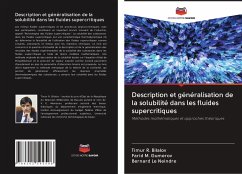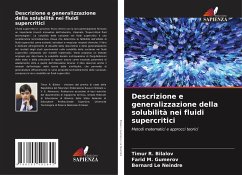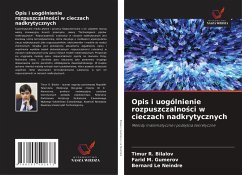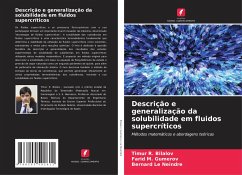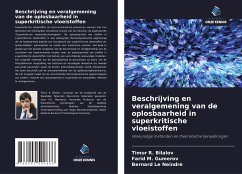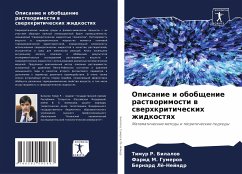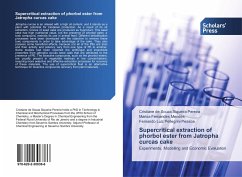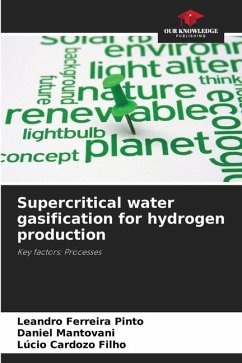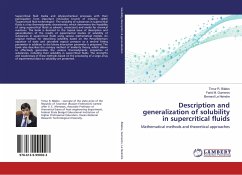
Description and generalization of solubility in supercritical fluids
Mathematical methods and theoretical approaches
Versandkostenfrei!
Versandfertig in 6-10 Tagen
25,99 €
inkl. MwSt.

PAYBACK Punkte
13 °P sammeln!
Supercritical fluid media and physicochemical processes with their participation form important innovative brunch of industry, called "Supercritical fluid technologies". The solubility of substances in supercritical fluids is a key thermodynamic characteristic which determines the feasibility of using supercritical fluids as solvents, extractants and media for chemical reactions. The book is devoted to the topical issue of description and generalization of the results of experimental studies of solubility of substances in supercritical fluids using various mathematical models. An original meth...
Supercritical fluid media and physicochemical processes with their participation form important innovative brunch of industry, called "Supercritical fluid technologies". The solubility of substances in supercritical fluids is a key thermodynamic characteristic which determines the feasibility of using supercritical fluids as solvents, extractants and media for chemical reactions. The book is devoted to the topical issue of description and generalization of the results of experimental studies of solubility of substances in supercritical fluids using various mathematical models. An original method for describing solubility based on the Peng-Robinson equation of state and saturated vapour pressure as a second fitting parameter in addition to the binary interaction parameter is proposed. The book also describes the entropy method of similarity theory, which allows to effectively generalize the various thermodynamic properties of substances, including their solubility in supercriticalfluids. The strengths and weaknesses of these methods based on the processing of a large array of experimental data on solubility are presented.



